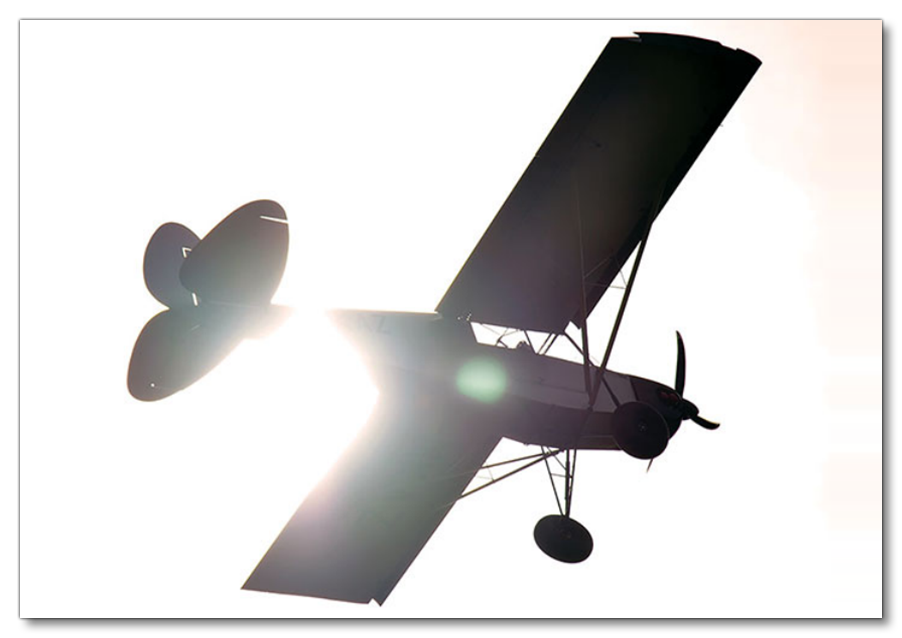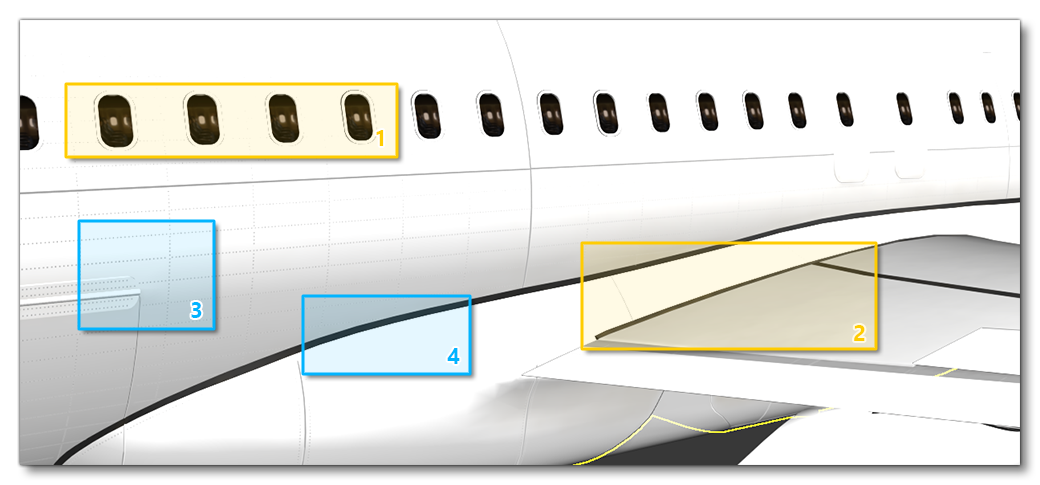SILHOUETTE AND MATERIAL CONTRAST
In order to minimize the effect of elements "popping" into existence when transitioning between LODs, it is important to maintain the silhouette of the aircraft and not overly reduce the geometry of the essential elements that form the aircraft profile. To give a direct example, consider the following silhouette - you can see wing shape, cross braces, round wheels and panel gaps:

All of these elements should be maintained with as high resolution as possible if the LOD distance allows them to be seen. Therefore, although the cables that support the wing are very thin and use few polys, if they can be seen at a given LOD distance in the silhouette like this then they should be maintained for that LOD. Likewise, the wheels should not be reduced too heavily around the outer edges as the silhouette is clearly visible.
Material Contrast
As well as considering the silhouette when creating your LODs, the contrast in materials should also be considered. When we talk about material contrast, we are referring specifically to the objects and details inside the silhouette that would noticeably "pop" if they were overly reduced. Take this image of a 747 model, for example:

With this model:
- the windows (1) and the wing surface material (2) have materials that obviously contrast with that of the fuselage, so any drastic reduction in the number of polys used for these areas would be easily noticeable.
- the body coloured rivets (3) and the bodywork (4) have the same material as the fuselage, so drastically reducing their poly-count won't be noticeable .
Also note that one of the very first things you can do when you go down a LOD is to remove all the small decals.
Finally, note that if you have a material which has a high specular level then you will see highlights "jump" on the geometry surface as the normals change with the LOD poly reduction. It is therefore important to reduce by priority:
- the geometry on large flat shapes first
- then reducing it on curved elements, trying to affect the normals as little as possible.
Related Topics